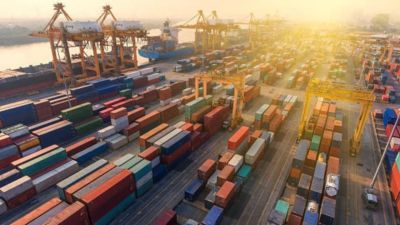Have the Chamars no right,asks SC
We are praised when we rule for the rich,slammed when we uphold rights of poor,says SC.
The Supreme Court has severely criticised some lawyers,journalists and men in public life for accusing it of judicial over-reach for entertaining public interest litigation filed by genuine social groups,NGOs and social workers espousing the cause of the poor and downtrodden.
In a startling observation,the bench said that so far the courts have been used only for the purpose of vindicating the rights of the wealthy and the affluent.
It is only these privileged classes which have been able to approach the courts for protecting their vested interests. It is only the moneyed who have so far had the golden key to unlock the doors of justice, the court said in a July 12 judgment.
The court said it is praised when it gives judgments in favour of the rich but condemned with a theoretical debate raising the bogey of judicial activism when it gives relief to the poor on a PIL.
A Bench of Justices G S Singhvi and A K Ganguly,in a 45-page judgment,said the highest court will be failing in its constitutional duty if it does not accept genuine PILs and those who are decrying public interest litigation do not seem to realise that courts are not meant only for the rich and the well-to-do,for the landlord and the gentry, for the business magnate and the industrial tycoon but they exist also for the poor and the down-trodden,the have-nots and the handicapped and the half-hungry millions of our countrymen.
The judgment,written by Justice Singhvi,came on a PIL filed by an NGO,National Campaign for Dignity and Rights of Sewerage and Allied Workers,highlighting the frequent deaths of sewage workers trapped in manholes.
The apex court gave the government a two-month deadline to ensure that these workers are given protective gear and better working conditions.
The court said the judgment is meant to erase the impression and misgivings of some people that by entertaining PILs of social action groups/activists/workers and NGOs fighting for those who silently suffer due to actions and/or omissions of the state apparatus and/or agencies/instrumentalities of the state or even private individuals,the superior courts exceed the unwritten boundaries of their jurisdictions.
There is a misconception in the minds of some lawyers,journalists and men in public life that public interest litigation is unnecessarily cluttering up the files of the court and adding to the already staggering arrears of cases which are pending for long years and it should not therefore be encouraged by the court. This is,to our mind,a totally perverse view smacking of elitist and status quoist approach, the court said.
If the sugar barons and the alcohol kings have the fundamental right to carry on their business and to fatten their purses by exploiting the consuming public, have the Chamars belonging to the lowest strata of society no fundamental right to earn an honest living through their sweat and toil? the court said.
The former can approach the courts with a formidable army of distinguished lawyers paid in four or five figures per day and if their right to exploit is upheld against the government under the label of fundamental right,the courts are praised for their boldness and courage and their independence and fearlessness are applauded and acclaimed. But if the fundamental right of the poor and helpless victims of injustice is sought to be enforced by public interest litigation, the so-called champions of human rights frown upon it as waste of time of the highest court in the land,which,according to them,should not engage itself in such small and trifling matters, it said.
The most unfortunate part,the court said,is that when the judiciary issues directions for ensuring the right to equality,life and liberty of those who suffer from the handicaps of poverty,illiteracy and ignorance,a theoretical debate is started by raising the bogey of judicial activism or judicial overreach.
The rule of law does not mean that the protection of the law must be available only to a fortunate few or that the law should be allowed to be prostituted by the vested interests for protecting and upholding the status quo under the guise of enforcement of their civil and political rights. The poor too have civil and political rights and the rule of law is meant for them also, the court said.
The court justified its stepping in through the medium of PILs by noting that in last 63 years, Parliament and State Legislatures have enacted several laws for achieving the goals set out in the preamble but their implementation has been extremely inadequate and tardy and (that) legislation has not reached millions of poor,downtrodden and disadvantaged sections of the society.






- 01
- 02
- 03
- 04
- 05

























